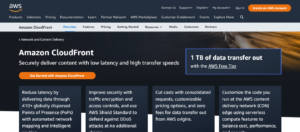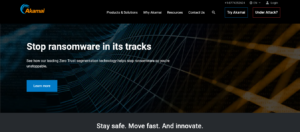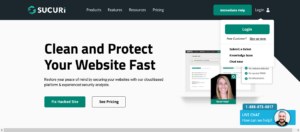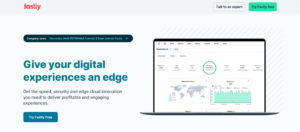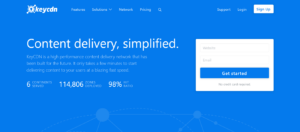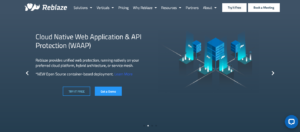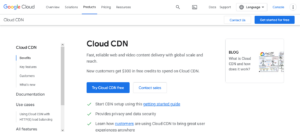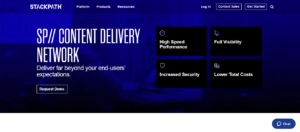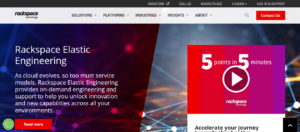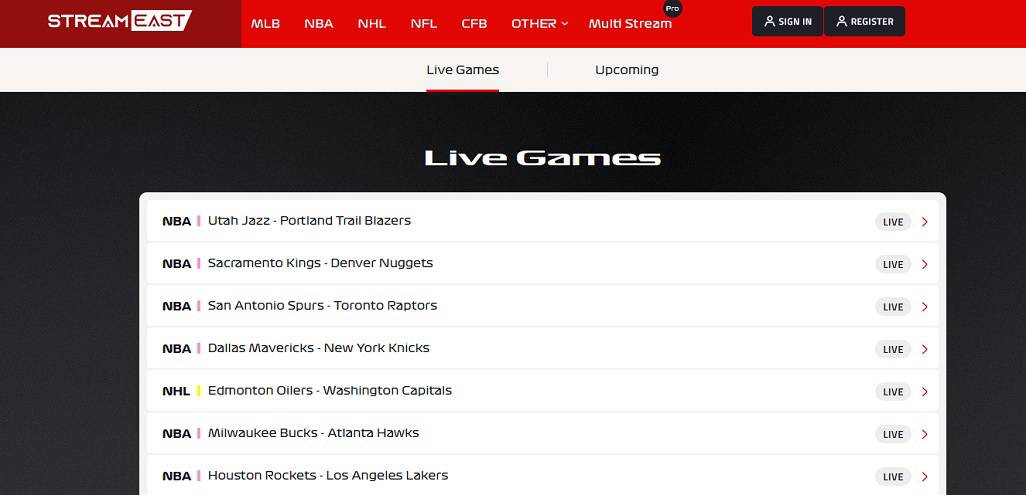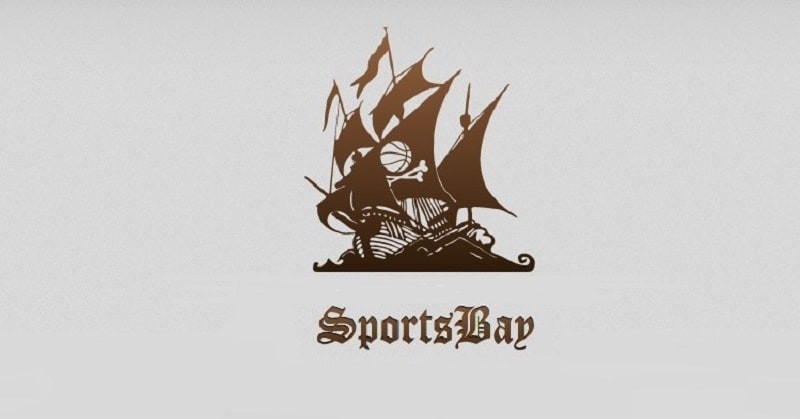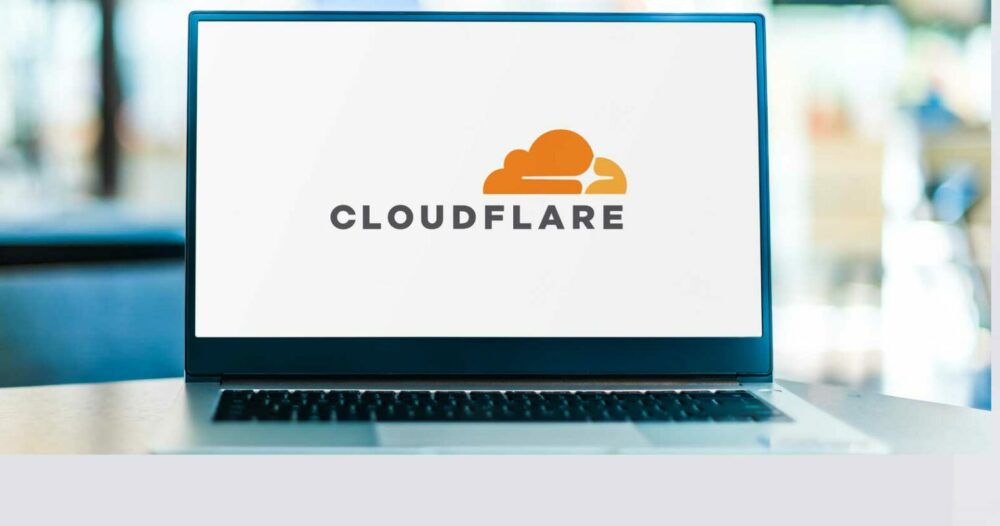
Cloudflare Alternatives 2022: A content delivery network (CDN) is a collection of geographically dispersed servers collaborating to provide rapid Internet content delivery. A CDN enhances the transport of assets fast to load internet content. These assets comprise videos, images, stylesheets, HTML pages, and javascript files. In addition, CDNs that are properly designed protect websites against malicious attacks such as Distributed Denial of Service (DDOS) attacks.
The content delivery network (CDN) Cloudflare protects and speeds up your website. Not only does this CDN block questionable traffic even before it reaches your site, but it also protects a site from comment spam and registration spam. In conjunction with Cloudflare’s worldwide network, your website will load faster than ever. In addition, Cloudflare offers defenses against DDoS attacks and hacking attempts. Websites hosted with Cloudflare are instantly SSL-enabled, encrypting user data for protection. Cloudflare provides automated backups if your website crashes, ensuring that users do not lose vital data. The best thing is that Cloudflare can keep your site online even when traffic is high, or servers are unresponsive.
However, Cloudflare lacks cache management, which may require users to handle cached content manually. In addition, Cloudflare provides a barrier between your visitors and your web server, waiting to optimize files before transferring them. As a result, new visitors to your website will experience delayed page loads. Finally, compared to other tools, its security features are inadequate. For instance, a firewall is only accessible on the premium plan, and virus eradication is not included. Here are the best Cloudflare alternatives you may use if this is too much of a nuisance for you.
12+ Best Cloudflare Alternatives 2022 To Try
Cloudflare Alternatives 2022 to try.
1. Amazon CloudFront
The Amazon CloudFront CDN stores the data, images, and videos of websites globally so that your website’s visitors may get them as fast as possible via servers near their location. It is integrated with Amazon Web Services (AWS), so all you need to get started is an AWS account. This is one of its primary advantages. In addition, Amazon CloudFront guarantees that each item will be delivered to your visitors with 99.99% uptime or higher, as I discovered. The tool supports multiprotocol, which includes both HTTP and HTTPS. This is one of the best Cloudflare alternatives.
AWS WAF is supported by Amazon CloudFront, allowing you to integrate your website with a sophisticated firewall that helps identify and mitigate DDoS attacks. The extensive but straightforward data management features provided by Amazon CloudFront make it easy for IT teams to handle every site of their apps or websites. This feature offers it an advantage over Cloudflare, whose controls are tough to set through API. You do not need to upload all of your static content to each region because Amazon CloudFront already has servers in every region. Amazon S3 buckets can perform this task automatically. The software is somewhat less expensive, which is ideal for startups. They will provide a free tier with up to 1 TB of transferable data. Pricing for additional storage starts at $0.085 for the first 10TB.
2. Akamai
Akamai Technologies is one of the largest CDNs in the world. Its principal product, the Akamai CDN, improves website performance, protects against DDoS attacks, and expands with the expansion of its client’s websites. Intelligent routing is one of Akamai’s key features. Akamai selects the optimal path to deliver your content depending on performance and the connectivity between them and your end-users. Their global network is also a key feature. They have tens of thousands of servers situated in hundreds of networks worldwide. Localized caching enables this improvement in performance and availability. This is one of the best Cloudflare alternatives.
Akamai is preferable to Cloudflare because it provides superior security features, such as page integrity and protection against account takeover. When a user requests content from a non-Akamai-optimized website, Akamai will optimize the content from your origin server and cache it in their nearest data center. They will then deliver the cached content to your end users. In addition, this CDN offers WAF (Web App Firewall) services to safeguard your origin servers from DDoS attacks and ensure web app security. This boosts your website’s security as compared to Cloudflare. The software offers a free trial of certain of its products. The price plan is provided when the trial period has concluded.
3. Sucuri
Sucuri is a Website Protection Company with several awards. Recently, they launched their new Sucuri Firewall service, a cloud-based security solution that detects and blocks attacks at the firewall level. The software performs routine backups of your website, checks the need to update plugins/themes, and offers recommendations to make your website more secure. Sucuri Firewall is an intermediate security layer that protects your server from intrusions and sits in front of your server. It provides a substantial defense against DDoS attacks.
Sucuri offers proactive security against malware injections, site incursions, blacklisting, and other threats. They are quite open about their work, and their site frequently discusses new security methods. In addition, it has sophisticated security features such as checks for file integrity and virus eradication. Cloudflare is not comparable. For starters, Sucuri offers a basic platform for $199.99 per year and a pro platform for $299.99 per year. A business platform is available for $499.99. This is one of the best Cloudflare alternatives.
4. Fastly
It is a CDN and cloud proxy service that enables you to effectively and securely manage and deliver content. Fastly has a flexible cache lifespan, so your content may be cached for varying amounts of time, depending on your features. You may use Fastly’s simple API to deliver content (including HTML) across its edge network. You may integrate it with your existing third-party service, such as Google Analytics or Optimizely. It offers an intuitive dashboard that can manage you in managing resources more efficiently. This is one of the best Cloudflare alternatives.
Fastly has a TLS encrypt certificate and HTTP/2 (new technology you should be using if you’re not) to secure your content, unlike Cloudflare. In addition, it possesses an edge network that may be used to deliver static content (HTML, JS, CSS, etc.), cached files, and dynamic content. Fastly is a wonderful solution for businesses that need to do A/B testing and simultaneously manage CDN resources and security. With Fastly, unlike other CDNs, you can deliver your content in less than 30 seconds after the initial request. The tool offers a free trial, after which you may increase your membership to Essential, Professional, or Enterprise.
5. KeyCDN
KeyTech Ltd. offers the content delivery network (CDN) service KeyCDN. You may host files on KeyCDN’s servers and distribute them to users over a worldwide CDN. KeyCDN supports HTTP/2 faster than HTTP/1.x since it only requires a single connection between the client and server, resulting in a more seamless page-loading experience. In addition, HTTP/2 supports server push, which offers the server to send CSS and JS files to the client without being requested beforehand.
Using server push saves the need for the client to request these files, reducing page load time. The maximum upload size for KeyCDN is 5 GB, which is significantly more than Cloudflare’s 100 MB. KeyCDN offers a 14-day free trial that does not require a credit card. After that, they offer a premium subscription that starts at $0.04 per month per GB. Its prices are extremely reasonable since the more merchandise you buy, the cheaper it becomes. This is one of the best Cloudflare alternatives.
6. Reblaze
Reblaze is website protection and anti-DDoS company. They employ clever ways to ensure that your app is never down or targeted by botnets. It provides more granular security restrictions, such as restricting the maximum bandwidth of an IP (throttling) and specifying the types of attacks to block. Also, it offers a bot protection feature that automatically screens out bots and other harmful apps. While Cloudflare has certain efforts to protect your website from DDoS attacks, it does not identify bots automatically as Reblaze does. Instead, it employs behavioral analysis and machine learning to detect and block malicious bots.
Reblaze safeguards your website with real-time monitoring of activity. If your website is under attack, its mitigations will either stop the DDoS attack or filter out malicious requests in real-time. Instead of sending requests directly to your web server, Reblaze filters requests before sending them to your web server. This assures that your web server will never experience a slowdown, even if it is under attack. Reblaze offers a free trial, after which, depending on your demands, it will send you an email with a subscription plan.
7. BitMitigate
BitMitigate is a service that works as a security solution to prevent DDOS attacks against websites and their users. One of its primary features is that it lets the user select which traffic or protocols are to be censored, allowing them to continue using their website while keeping it safe. BitMitigate is preferable to Cloudflare because it offers a more versatile and configurable service, allowing you to configure its features to your specifications.
Instead of protecting a set of protocols and traffic, BitMitigate gives you total control over the security of your website. This is accomplished through a dashboard where one may view statistics about the under-attack website’s performance and configure the mitigation settings. In addition, BitMitigate now offers its users the opportunity to rent dedicated IP addresses from hosting providers. The IP address will only ever point to the user’s website.
8. CDN77
A Content Delivery Network (CDN) lets you cache your site’s static content in its data centers, allowing you to save bandwidth and load web pages significantly faster. The CDN77 API is one of its features, allowing users to view server statistics and manage their content delivery. In addition, CDN77 allows you to use your domain name on the CDN servers. Unlike Cloudflare, this lets you maintain total control over your content without requiring any DNS modifications. This is one of the best Cloudflare alternatives.
They provide a free SSL certificate for each domain, even if used for GitHub pages. You may automatically remove files or folders from their servers using a single API request. Lastly, they have exceptional customer service that is always accessible to assist. They offer monthly plans based on the amount of traffic required. For instance, the base service includes 6TB of monthly traffic and costs $199.
9. Cloud CDN
It is a solution given by Google Cloud Platform to assist in the scalability of your website. Cloud CDN is an edge cloud service that expedites your content delivery. It enables you to host static content on Cloud CDN servers near the end user. Well, Cloud CDN content is cached on these servers, and future user requests are routed from a nearby edge location. This means that all assets, like HTML files, images, and media files, are loaded from a fast, low-latency edge location nearest the user, enhancing the loading speed.
Cloud CDN caches frequently visited content on a network of more than 100 edge servers worldwide. Cloud CDN enables you to configure specific caching behavior for each website route. In contrast to Cloudflare, you may set your app’s cache-expiration policies and headers. The tool offers a free plan for first use. After that, a range of plans is available to you, depending on your required traffic and location.
10. BunnyCDN
The BunnyCDN is a Content Delivery Network (CDN) that uses open-source software. It provides fast, dependable, and secure data to destinations worldwide. Not only is the tool faster than professional CDNs, but it is also ten times less expensive. In addition, one of its features may change your data’s hostname and delivery location. Finally, BunnyCDN is a global CDN, enabling you to deliver targeted content in several countries. This is one of the best Cloudflare alternatives.
In addition to providing cache statistics and resource management tools, BunnyCDN gives you complete control over your bandwidth. BunnyCDN is very interoperable with any platform, CMS, or programming language because of its API. BunnyCDN is compatible with four distinct scripting languages: URL, HTTP, SOAP, and LWP, making it incredibly function-easy. Furthermore, BunnyCDN is capable of operating with non-DNS scripts. BunnyCDN supports video streaming and provides a video delivery network with configurable cache expiration. The region-based cost for the software starts at $0.01 per GB. Notably, its pricing is less affordable than Cloudflare’s and depends on region and capacity rather than monthly.
11. Imperva
Imperva is another cloud-based security platform that offers DDoS protection, load balancing, and failover services for websites and blogs. This service’s bot identification engine is a remarkable feature. Imperva helps reduce false positives in attacks, especially Layer 7 attacks that are extremely advanced. Layer 7 attacks frequently target specific website regions, making it difficult to identify fraudulent traffic. Imperva offers additional DDoS protection for email and FTP infrastructures. It offers a free tier in addition to premium levels with WAF and DDoS protection. Well, its ‘IncapRules’ feature is a scripting language that offers comprehensive and precise control over all clients’ security rules.
It provides them with access to tools for analyzing vital information about incoming traffic, such as client type, access rates, location, and headers. Compared to Cloudflare, Imperva offers speed-enhancing features such as code minification, session reuse, and TCP connection pre-pooling to enhance the performance of your website. It has several data centers with Behemoth machines that can process 170 Gn/s of data per unit. They can handle up to 100 million packets per second. In addition, it offers app and data features independently. It offers a free trial, with premium pricing plans available upon request.
12. Zscaler
Zscaler is a global cloud security provider with over 100 data centers. Its scalability and performance are of the highest quality, allowing its clients to deliver content quickly. Zscaler collaborates with internet exchange points to deliver enhanced performance and exceptional availability. It consistently scales to the traffic demands of its users, including SSL. This solution protects against cloud security vulnerabilities since it instantly responds to breaches and blocks them. Well, the CDN offers a three-tiered solution with unified policy and governance. It features modules with brisk and durable performance. This is one of the best Cloudflare alternatives.
Users can send their traffic to the enforcement nodes of Zscaler to build data logs. This feature lets users access services, apps, and content with the highest security. Its activity monitor monitors the cloud system to provide users with a single interface for threat information, software and database upgrades, and data. The software uses Nanolog technology to compress logs without causing any data loss. Zscaler implements HTML5, JQuery, and other products. This software reveals its network security features, whereas Cloudflare conceals them. Streamlining IT processes has helped several major businesses reduce expenses. However, its prices are dependent on quotes.
13. Microsoft Azure
Microsoft Azure is well-known for providing content with high bandwidth. It has superior competence with the ability to cache static items using POP (closest point of presence). Microsoft Azure speeds dynamic content by employing efficient routing optimizations and networks. As a result, Microsoft Azure guarantees great scalability for managing high demand. This is one of the best Cloudflare alternatives.
When holding a large event, significant traffic will not cause your site to crash. When compared to Cloudflare, it is the best in this category. It offers extensive customization, allowing for improved results. With intelligent traffic management, HockeyApp, Xamarin, and Axure Cosmos DB, you can design individualized mobile experiences. Microsoft Azure offers free 12-month and premium “pay as you go” plans.
14. StackPath
It is a platform that provides cloud security by developing methods to protect against internet attacks. StackPath allows you to deliver content without worrying about potential risks. StackPath boasts 90 active technologies, 30 of which are used by its products and services, including JQuery and HTML5. It offers a responsive, user-friendly UI. StackPath is easier to employ for business purposes compared to Cloudflare. The simplicity of StackPath is the primary reason why small businesses like it.
StackPath’s content delivery service is integrated with a well-documented API and web app firewall. Quick configuration changes, real-time analytics, instant purging, and origin shield are available. This platform provides built-in analytics and reporting and a comprehensive set of standard policies that can be managed through its site. It features Serverless Scripting and a RESTful API. Its pricing approach is affordable and reasonably priced. The Basic plan is $15 per month, whereas Enterprise Plans are quoted individually. SSL, DDoS, and WAF protection are included with all plans.
15. Rackspace
Rackspace is a specialized cloud computing platform that provides CDN services to enhance the performance of your websites, web apps, and eCommerce sites. It has a pay-as-you-go pricing model lets you use its services for $0.16/GB. The platform is constructed on robust cloud architecture to ensure fast performance. It has more than 200 data centers throughout the world. Among its features are caching rules, content retrieval from the website’s origin servers, content deletion from the CDN’s edge nodes, and access controls. In addition, it offers superior customer service compared to Cloudflare.
Rackspace enhances the performance of publicly distributed assets, such as web app components, website content advertisements, interactive experiences, and media-like videos. By caching these assets on the edge nodes (edge servers or point of presence (POP) servers), CDNs reduce their load time. With globally dispersed edge nodes, they can cache content and reduce it directly to clients, reducing the transit time to their location. The Rackspace Cloud Control Panel (API) provides straightforward provisioning that helps you to CDN-enable your websites and apps in seconds, regardless of where your content is stored. In addition, you may manage your CDN-enabled domains and any assets and origins associated with these domains.
It is compatible with all origins that offer a public interface, including cloud load balancers, cloud servers, dedicated servers, cloud files, and other sources. Its prices are dependent on quotes. With more than 230 edge nodes, Akamai Technologies CDN is one of the largest distributed computing systems in the world. It can cache publicly available contents housed in a public cloud files container or on an instance of a cloud server. You have all the tools necessary to get the best results with a single global API access point and a RESTful API.
Wrapping Up: Cloudflare Alternatives 2022
Our CDN platform of choice is StackPath. It develops technology that ensures sufficient protection against internet dangers. StackPath’s content delivery service is not only user-friendly but integrated with API and web app firewalls. In addition to cloud security, you can access real-time monitoring and analytics, serverless scripting, immediate configuration changes, quick purging, and an origin shield. In addition to its simplicity, you can access affordable pricing that includes DDoS, SSL, and WAF protection.
